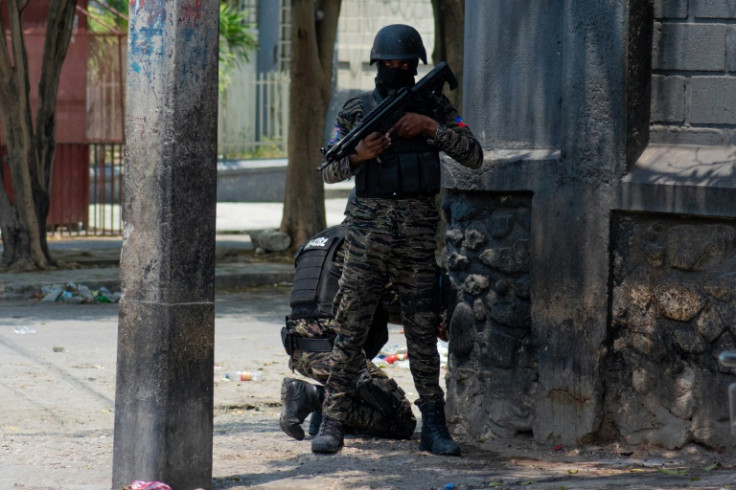
Jameson Jacques has been living in a makeshift shelter in Haiti's capital with his three children since gang members torched his house, killing his parents.
Like him, many people in Port-au-Prince have been enduring a hellish daily routine a month after the announcement of a transitional governing council -- yet to be finalized -- meant to put the country back on the road toward some semblance of order, and eventually toward holding elections.
The city is a dangerous and chaotic place these days. Walking down the street it is frighteningly easy to get caught up in random violence -- muggings, kidnappings, carjackings, rape or gunfire as gangs attack police, each other or innocent bystanders.
"Port-au-Prince has become unlivable," said Jacques, a man in his 30s. "If I had money I already would have left for some provincial town with my three kids."
Haiti has suffered from grinding poverty, political instability and natural disasters for decades, and now it is grappling with a wave of violence from powerful gangs that control most of the city and much of the country.
Starting in late February these gangs teamed up to attack strategic sites in Port-au-Prince, such as police stations, government ministry buildings, the airport and the sea port in a violent drive to oust Prime Minister Ariel Henry.
Henry is unpopular and unelected -- he was appointed by president Jovenel Moise shortly before his assassination in 2022. Henry announced on March 11 that he would step down to make way for a presidential transition council -- tasked with appointing a new prime minister and government and leading Haiti toward elections.
The slain president was never replaced and Haiti has not voted since 2016.
But the council has yet to be formed, with repeated delays stemming from disagreements among parties that are due to be represented on it and with the outgoing Henry government.
Meanwhile people have to deal with life in a city that is 80 percent controlled by gangsters who are better armed than the police.
"I am living a nightmare. For weeks I have not been able to go to the city center," said Junior Fontus, a drinks vendor who had to move his business to the Education Ministry building, which has become a shelter for Haitians displaced by all the violence.
"Without my business how am I going to feed my five children and pay for their schooling?" he asked.
In March alone gang violence prompted some 53,000 people to flee from the city.
"I used to say I would not leave the country. I advised young people not to leave, saying it was better to pool our savings and start a business," said Charles Jean Wilderson, a 38-year-old businessman.
"But now," he added, "a young person that leaves is doing the right thing."
In Port-au-Prince, gangs rule and police struggle to defend themselves against an enemy that is more numerous and better armed.
The United Nations has called the situation catastrophic, with 1,554 dead and 826 wounded in the first three months of the year.
Haiti was devastated by an earthquake in 2010 that killed more than 220,000 people, and it depends largely on imports and humanitarian aid to survive.
But the gangs shut down the airport and the sea port in recent weeks, leading to shortages of food, medicine and other basics.
The health system is on the verge of collapse, and the few hospitals still operating are overwhelmed.
In the space of about five weeks starting in late February, La Paix University Hospital in Port-au-Prince admitted 194 people with gunshot wounds, said Paul Junior Fontilus, a doctor who works there. It is also short on blood for transfusions.
"It is very difficult to get fuel and oxygen to take care of our patients," said Fontilus. "Thanks to aid from some of our partners, we manage to get by. But I don't know how long this can go on."







